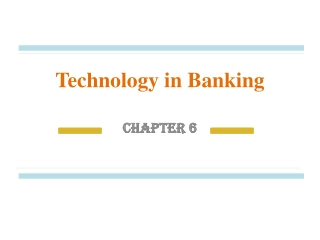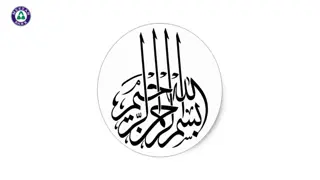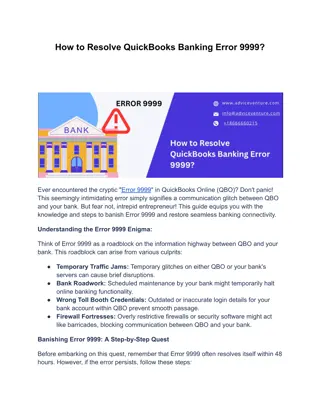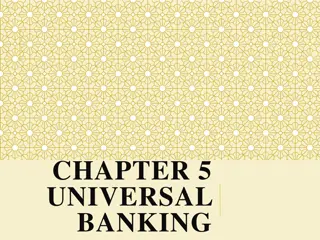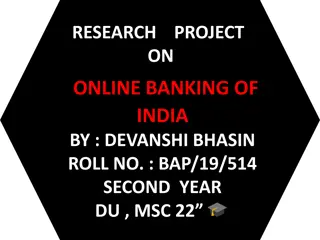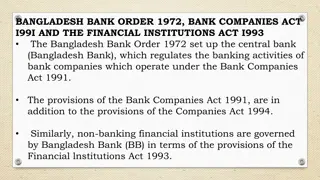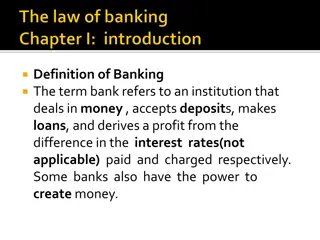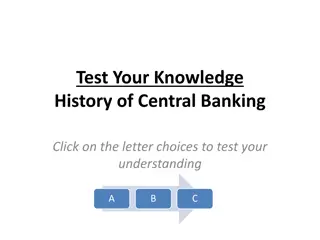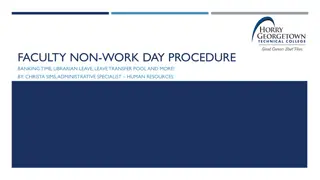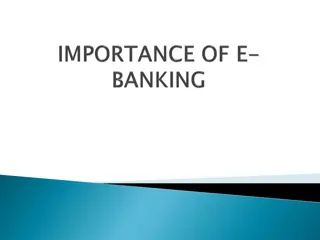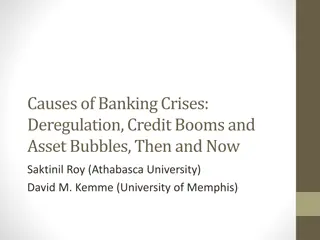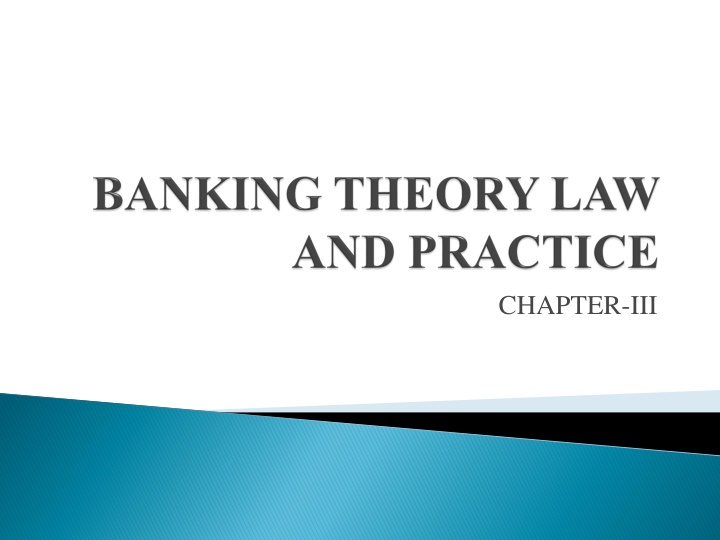
Role and Functions of a Central Bank in Modern Economies
Learn about the essential role and functions of a central bank, including maintaining the internal value of currency, ensuring price stability, and promoting economic growth. Discover how central banks act as regulators of currency, bankers, advisors to the government, and custodians of cash reserves, playing a crucial role in the financial system.
Download Presentation

Please find below an Image/Link to download the presentation.
The content on the website is provided AS IS for your information and personal use only. It may not be sold, licensed, or shared on other websites without obtaining consent from the author. If you encounter any issues during the download, it is possible that the publisher has removed the file from their server.
You are allowed to download the files provided on this website for personal or commercial use, subject to the condition that they are used lawfully. All files are the property of their respective owners.
The content on the website is provided AS IS for your information and personal use only. It may not be sold, licensed, or shared on other websites without obtaining consent from the author.
E N D
Presentation Transcript
A central bank is a financial institution given privileged control over the production and distribution of money and credit for a nation or a group of nations. In modern economies, the central bank is usually responsible for the formulation of monetary policy and the regulation of member banks.
Maintain internal value of currency Ensure price stability Preserve the external value of rupee Promotes economic growth Promote financial institutions
Regulator of Currency Banker, Agent and Advisor to Government Custodian of Cash Reserves Custody and Management of Foreign Exchange Reserves Lender of Last Resort Clearing House Controller of Credit and Protection of Depositor s Interest.
Liquidity Safety Diversity Stability Profitability
Operates for Profit Motive. The Majority of Stake is held by the government as well as the private sector. Work for the public welfare and economic development of a country. A central bank is governed government of a country. Controls and regulates the entries banking system of a country. by the Operates under the direct control and supervision of the central bank. In India all the commercial works under the guidelines issued by RBI. banks CENTRAL BANKING COMMERCIAL BANKING
Does not deal directly with the public. It issue guidelines to commercial banks for the economical development of the country. Deals directly with the Public. It serves the financial requirement of the public by providing short and medium terms loans and depositing and securing money that can be drawn on demand. Does not Issue currency, but only adds to the approval of the central bank. Issues currency and control the supply of money in the Market.
Acts as a state owned institution. Act as a custodian of a foreign exchange of the country. Acts as a state or private owned institution. Perform foreign exchange business only on the approval of the central bank. Acts as agents of the central bank. Acts as a clearing house only as a agent of the central bank. Act as a banker to the Government. Controls credit creations in the economy, thus acts as a clearing house of other banks.

